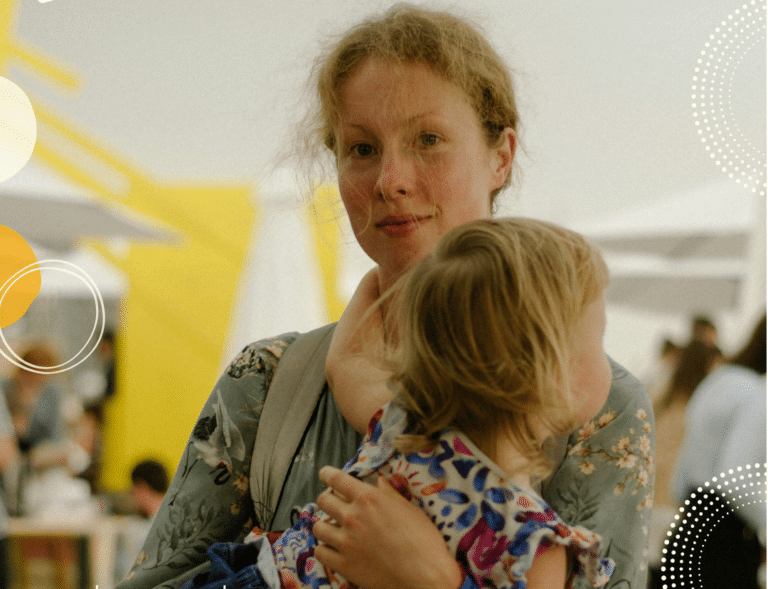How temperament impacts children’s behaviour
Most parents instinctively understand that children are born with their own innate personality that drives their behaviour. (And if we weren’t sure of that, a second or subsequent child coming along who seems to be wired totally differently often makes this very clear indeed!). This in-built temperament impacts children’s behaviour and development (and our parenting) in many different ways.
For example, parenting strategies that might work brilliantly with one child can be less successful with another. By getting to know our unique child and recognising the role of temperament, we can learn to adapt and adjust our parenting so we can meet their needs in ways that work.
What is temperament?
Temperament is a child’s predisposition to respond to their environment in certain ways. Psychologists classify a child’s temperament according to different character traits, such as:
- how reactive they are (eg. do they tend to be calm or have frequent intense reactions?)
- emotionality (eg. do their emotions tend to be more positive or negative on balance?)
- how well they adapt (eg. to new situations or change)
- persistence (eg. how long they stick at an activity or keep trying)
- how active they are (eg. are they happy to sit still or always running around?)
Research shows that most children have fairly easy temperaments, on the whole. These children tend to have more positive emotions, settle easily when distressed, and are comfortable in a wide range of environments.
How temperament impacts children’s behaviour
Temperament can be thought of as children’s general behavioural style. In a baby, for example, this behavioural style might be observed in how much they cry and how quickly they are soothed. In a pre-schooler, it might be seen in how they respond to new situations or how easily they become upset.
There is some evidence which links children’s different temperaments to friendship difficulties, to anxiety, and to oppositional or aggressive behaviour in adolescence.
However, this might not be a straightforward link. Because just as temperament impacts children’s behaviour, it also impacts our parenting (which will in turn also impact children’s behaviour). Parenting is a two-way relationship. Parents who have children who are generally happy and easy to soothe tend to feel more confident and competent in their parenting role and they experience less stress. It is much easier to be a calm parent who maintains warmth and sets boundaries consistently when you are feeling relaxed and confident.
Children who are highly reactive or experience a lot of negative emotions, on the other hand, often leave parents feeling like they are failing their children in some way or not getting parenting ‘right’ – which can have a knock on effect on how we respond to our children’s behaviour and can trigger parents’ big emotions.
Is temperament fixed?
Yes and no. There is certainly a genetic component to temperament and studies show that children’s temperament is fairly fixed from an early age. However, genes only predispose us to certain responses. So, environment always impacts how temperament is expressed. Highly sensitive children, for example, will have a tendency to become easily upset and have a low tolerance for new experiences – but there is no reason they can’t thrive and learn to settle if they are supported in ways that take into account these tendencies.
How understanding temperament help parents
Temperament impacts children’s needs and how they express those needs. When parents understand their child’s temperament, it can be much easier to find effective ways to respond to them and support them. Sometimes, that understanding comes naturally, and sometimes we have to work at it.
When parents call me up for support, they don’t usually say “I’m having problems with my parenting.” What they say is “I’m having problems with my child.” Often, one particular child is identified as the problem. When I ask about the other children in the family, I am often told that this ‘problem’ child is really different, and that their siblings are much more co-operative and easy and just do what they are told.
As parents, we tend to expect that we will (or should) feel the same about all our children. But sometimes we can can find it harder to click with one child than another (of course, with that comes a huge helping of guilt…). Often, this comes down to temperament. An ‘easier’ child perhaps has an easier temperament, or a temperament which fits better with their parent’s natural parenting style. When it works like that, parenting can feel very simple: “I do this, my child does that, the result is positive and we both learn to do the same things again.” A virtuous circle.
Sometimes, the things we try as parents don’t work well (“I do this, my child does not do that”) and we have to adapt and adjust our parenting according to our child’s temperament. We learn, for example, that this particular child does not cope well with surprises but thrives on rigid routines and certainty. And we adapt.
More often than not, the ‘problem’ child in the family is the child whose temperament requires us to step furthest outside our own personal comfort zone in order to try and fit our parenting around them.
The good news is that when parents take on board a child’s temperament and learn to interpret the ways they express their needs, we can learn ways to support them emotionally and encourage them towards positive behaviour.







Leave a Reply